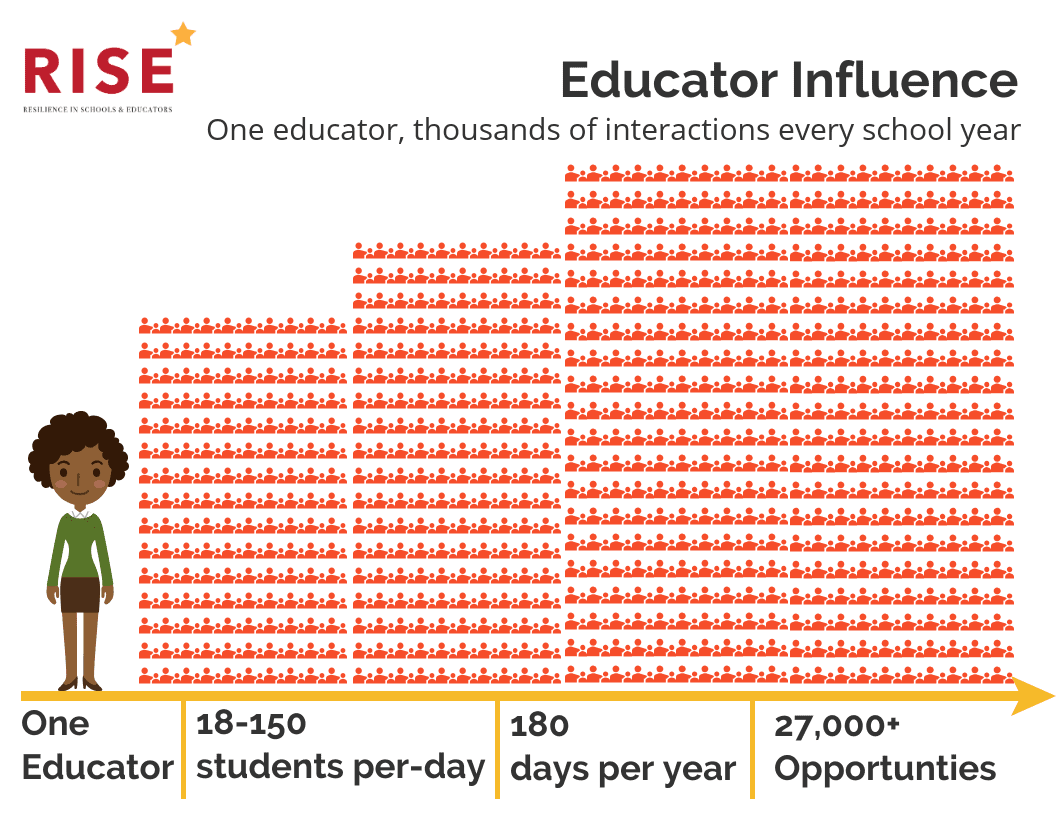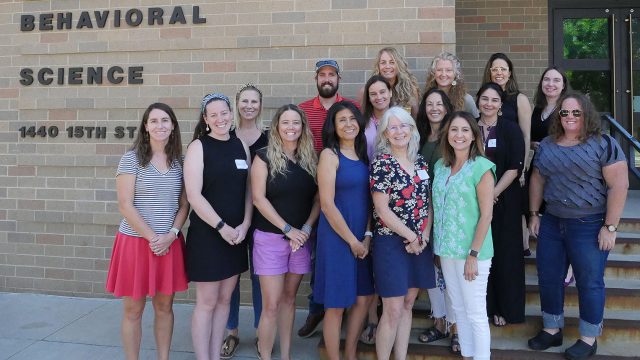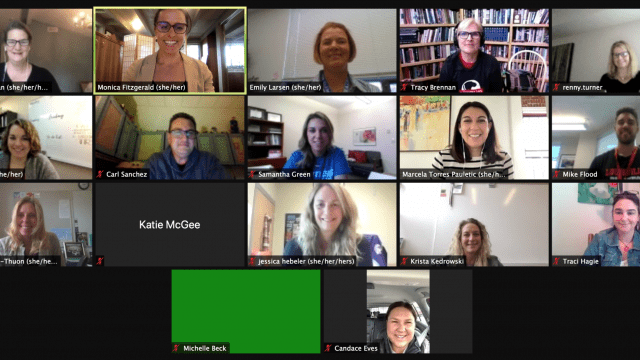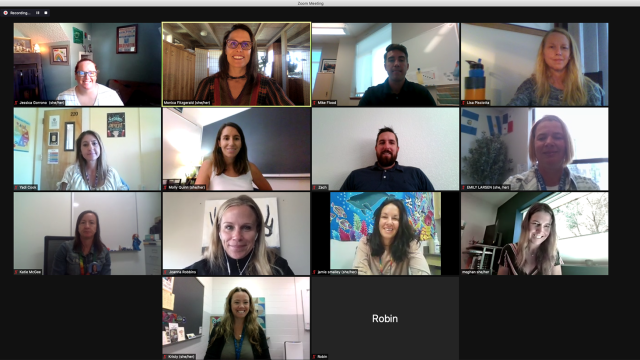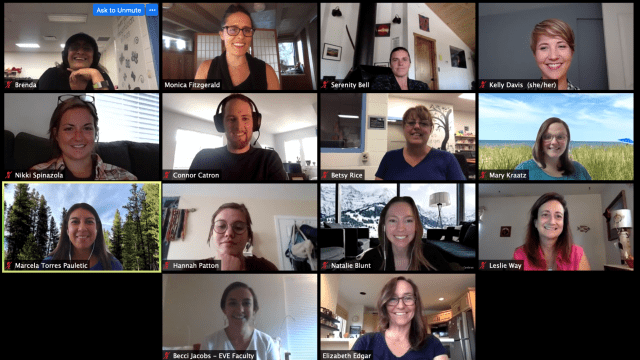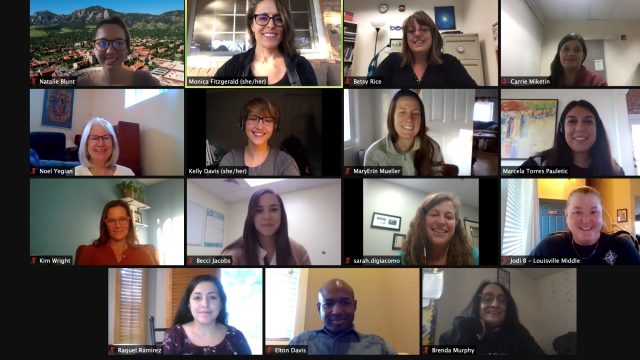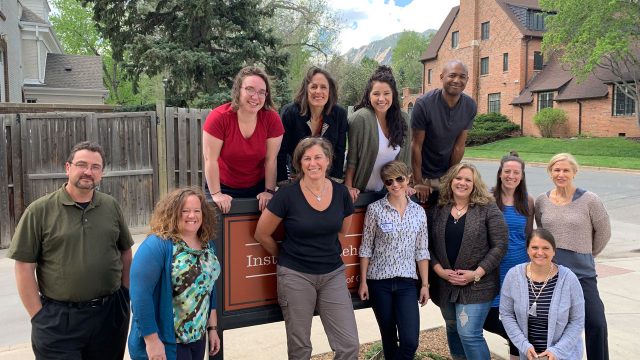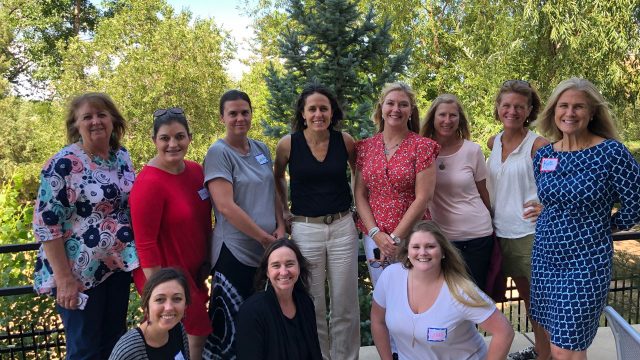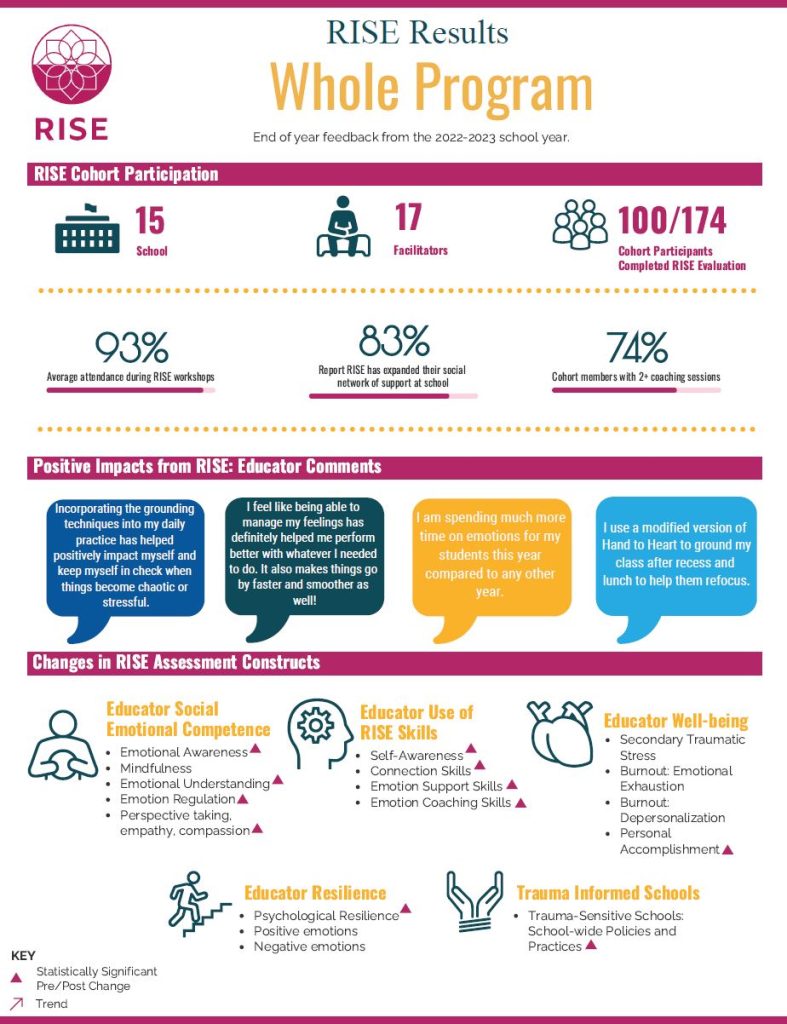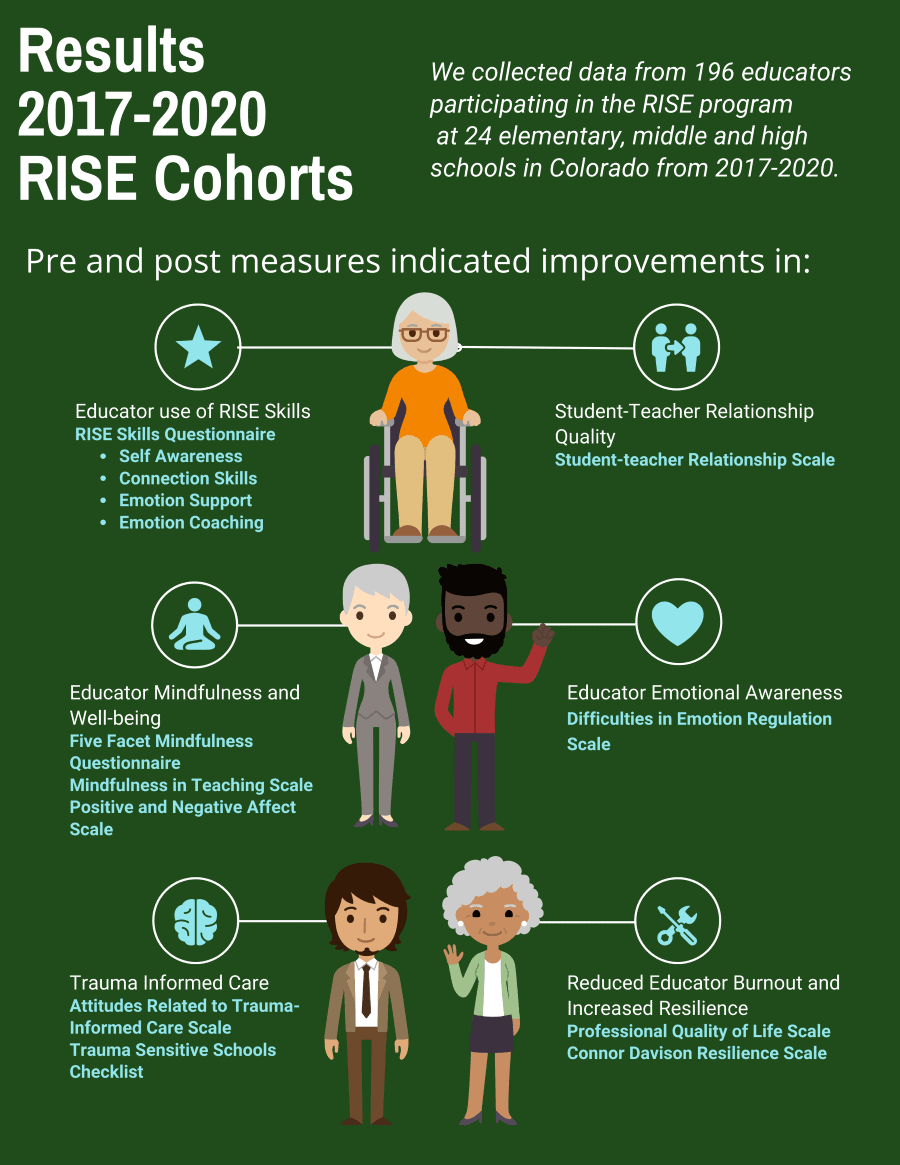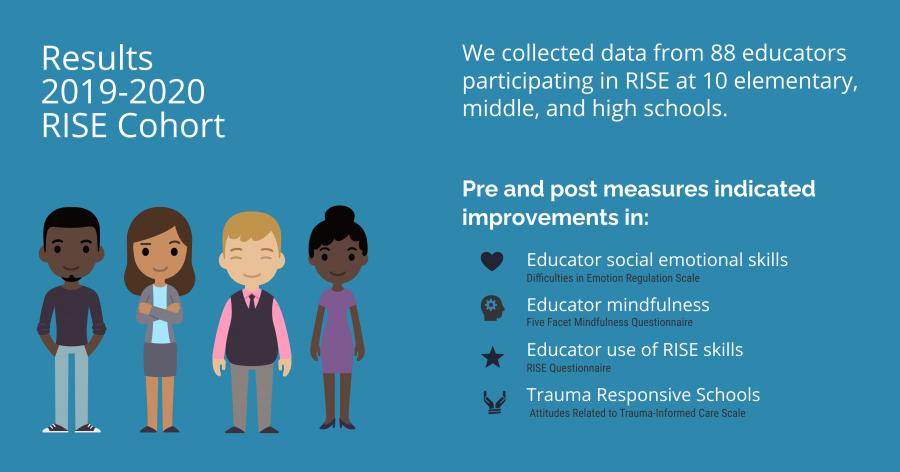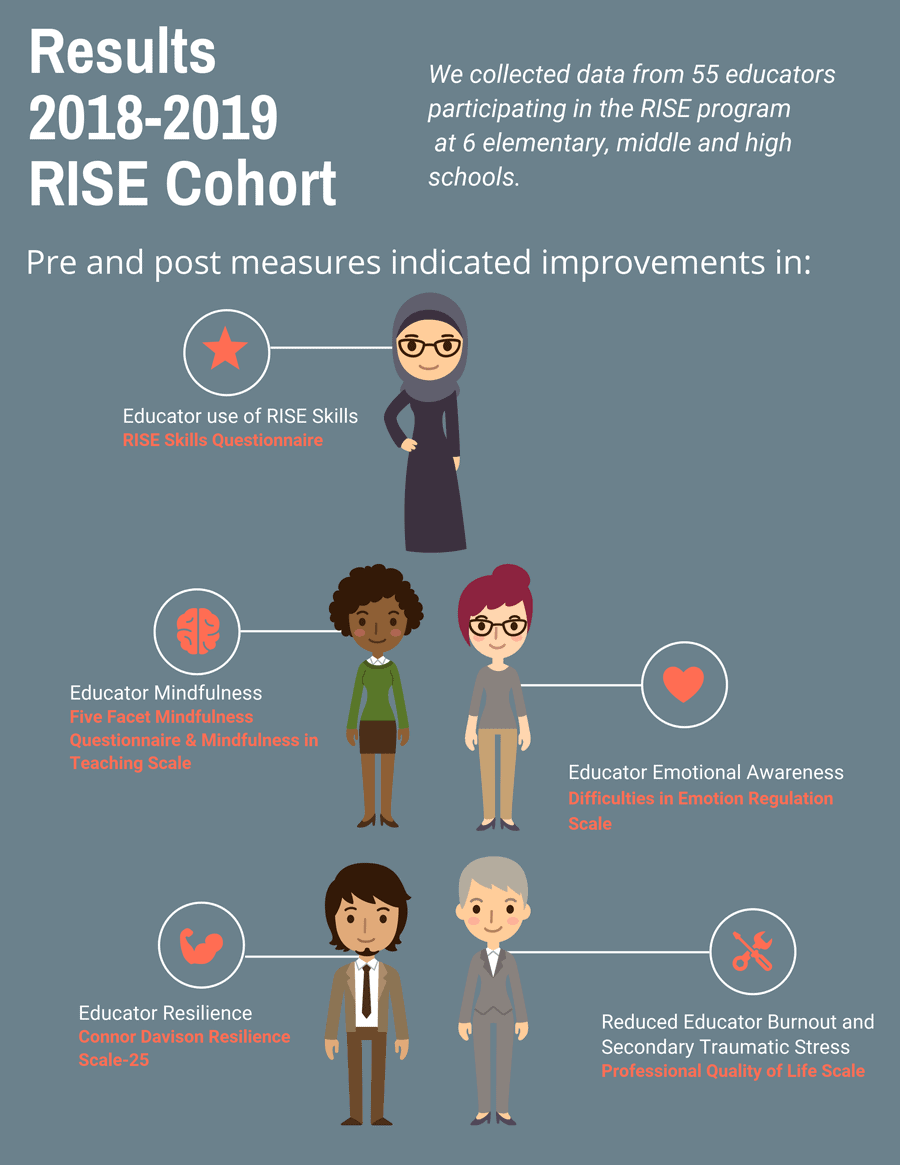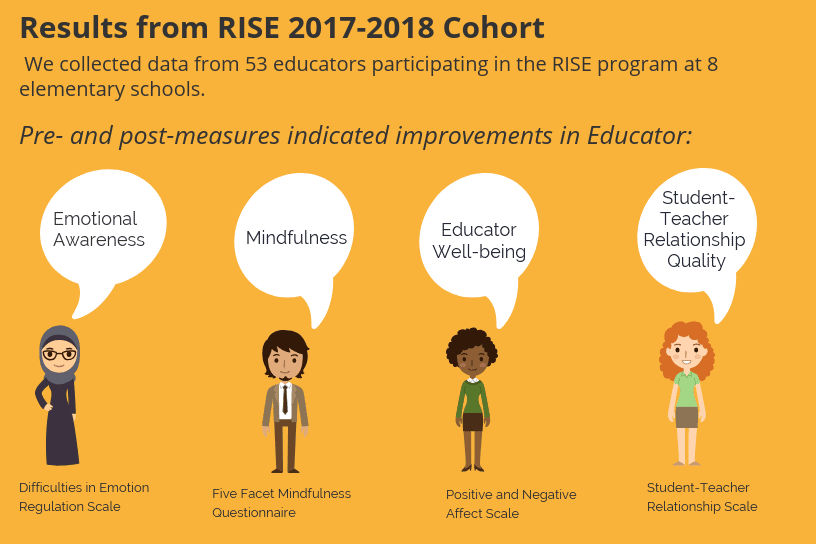
RISE is an adult-centered, trauma-responsive prevention program that builds educator social emotional skills, intentional environments, and safe supportive relationships to foster resilience and well-being for everyone at school.
The RISE approach includes a set of practices and strategies that build social emotional and academic competencies. RISE integrates what we know about trauma, resilience, social emotional development and academic achievement to help educators design environments and interactions where students can thrive and learn.


